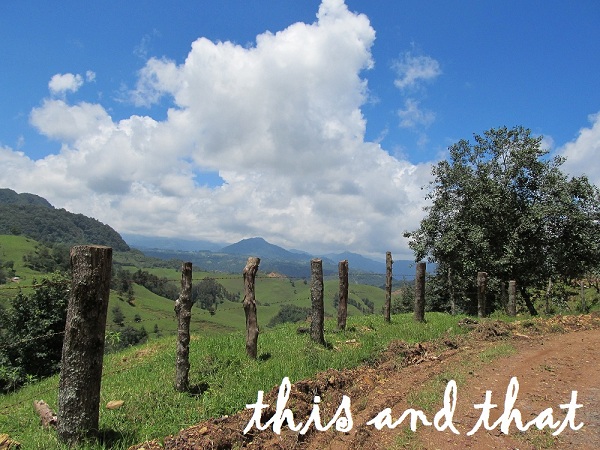Totonacan dancers performing a traditional
folk dance in honor of the local saint. Cuautotola, Puebla.
Research seems to be a much-overlooked aspect of ministry and not something that we'd thought a lot about, to be honest with you, so it's been a very interesting subject to learn more about. Hearing our Area Leader's thoughts about research, however, we quickly saw the value and importance of research in a ministry context. Gathering information is a most critical part of the ministry process in order to be able to develop the most effective, strategic and productive ministry strategy possible.
At first we were merely considering gathering ethnographic research (aimed at describing a particular culture and society) and/or strategic mission research (gathering data about things that can be mapped, such as locations of churches, percentage of Christians in each province, etc.), but the more we have learned about the Totonacan people and their context, the more interested we have become in doing research of a different sort.
The Totonacans aren't exactly what you would call an 'unreached people group', since there are many Totonacan churches that have already been planted among them. There continues to be a missionary presence in Totonacan communities and many of the pastors of these churches are themselves Totonacans. They do seem to be, however, what you could term an 'un-discipled people group' and there is still much work to be done in the areas of personal discipleship and Bible translation (only 3 of 7 or 8 dialects have a New Testament in their language and even those aren't widely used).
Totonacan musicians playing accompaniment
to the folk dance. Cuatotola, Puebla.
While ethnographic and strategic mission research will certainly be included in our research project, we would also like to look at some more specific issues of how churches have been planted among the Totonacan people and what does discipleship look like in the existing Totonacan churches (unfortunately, as is the case in many places, discipleship is more about classroom learning than a personal discipleship relationship such as Jesus modeled).
As we have been looking around for some good resources to help us with this research challenge, we discovered a resource called Breakthrough from GMI (Global Mapping International). Written by Stan Nussbaum, Breakthrough is a resource that assists those in ministry to evaluate their ministries to see areas that could be improved and helps them learn more from their experiences than they might otherwise. The guide aims to help you 'develop basic skills in field research, apply them to one issue or aspect of your ministry, and take action based on the insights that emerge from your research' (pg. 1).
We ordered the guide (although we plan to also order the e-book when it is available as it has more content) and are just beginning to read through it to learn more about this resource. Even though this guide is more geared towards people who have already been in ministry for a while, it can also be adapted for a situation like ours where we are wanting to gather information in order to develop a strategy for future ministry.
Totonacan musicians. Cuatotola, Puebla.
Here is another quote I really like from page 1:
'This guide will help you get a clearer picture of other people's thoughts and feelings about your ministry. By understanding people better, you will get into a better position to hear what God wants to tell you about serving them.'
My thought on this quote is that this takes a lot of humility to be willing not just to hear other people's thoughts and feelings about one's ministry, but to also change and/or correct mistakes or methods that aren't as productive or as effective as they could be. I have known/do know many in ministry for whom this would be difficult.
So, we're super excited to keep on reading this resource and learning more about how to do research in ministry, even though it scares us a little at the same time! We're kind of new to this whole research scene and I think we have a lot to learn. We're not just excited about conducting the research in the Totonacan communities, however, but also about the possibility of helping others do this kind of research in their ministries as well! The more we learn about it, the more value we see in adding good research skills to prayer over ministry problems and strategy development...and that's something we'd like to share with others.
Totonacan musicians in front
of the Catholic church. Cuautotola, Puebla.
















No comments:
Post a Comment